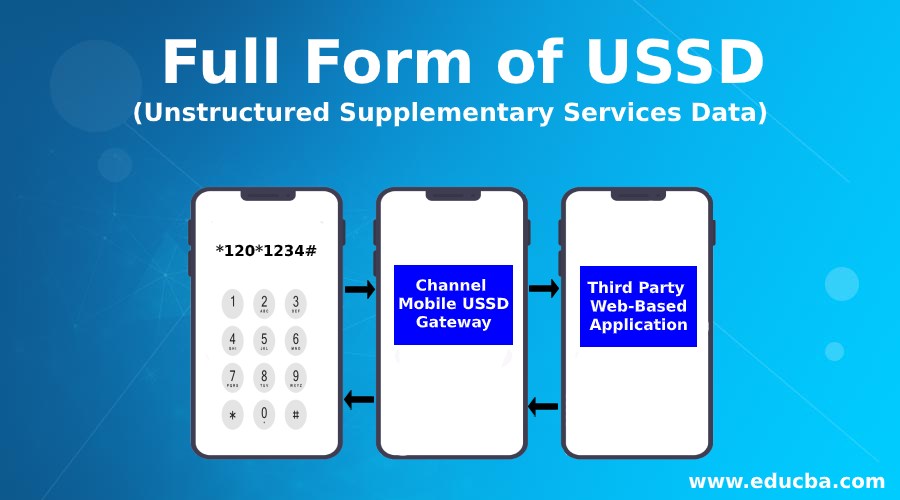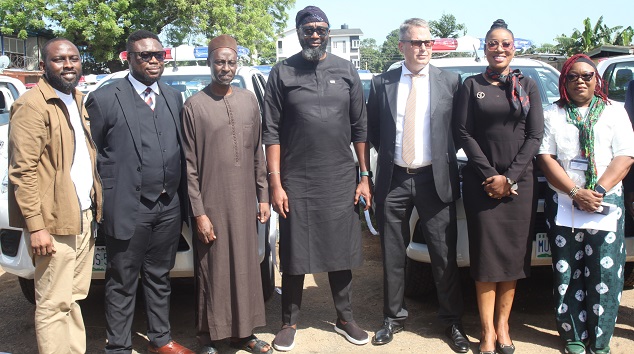Telecom
FG Reiterates Commitment to Build Capacity of Nigerians on Creative Technology

The provision of massive employment opportunities through digital skills has informed the decision of the Federal Government through National Information Technology Development Agency (NITDA) to embark on several initiatives aimed at upskilling and reskilling Nigerians across all walks of life in line with the National Digital Economy Policy and Strategy (NDEPS).

DG, NITDA Kashifu Inuwa, represented by Dr Salihu Abdulkarim of NCAIR at the closing ceremony of Creative Technology Programme.
Kashifu Inuwa, Director General of NITDA who was represented by Dr Salihu Abdulkarim stated this while delivering his goodwill message at the closing ceremony of the Creative Technology Programme, Phase 1 Training that focuses on business opportunities in Nigeria.
He said Creative Technology Programme is aimed at developing and retaining talents in Nigeria on promoting career skills and providing job opportunities among the beneficiaries with the goal of nurturing and upskilling Nigerians’ talents into viable career options; and create an ecosystem that will boost the economic potential of all participants.
Inuwa stated that the Agency is making tremendous efforts in pursuing a robust and all-inclusive talents development agenda that will create a competitive environment for the development and production of IT goods and services in the country, adding that the program would serve as mechanism for diversifying the nation’s revenue using digital economy.
He said, “The various capacity development programmes in our strategic plan have been designed to serve as a foundation for rapid development in all sectors, and we have built hundreds of digital capacity training centers and IT incubation Hubs across the nation to facilitate these programmes.”
Inuwa maintained that it is very important for Nigerian to build its talent from within because the nation is endowed with abundant talents.
“We have all we need to grow and compete with some of the biggest industries in the world. The retainment of talent within Nigeria can only happen if we all agree to stay here and build what we have.
“We have started building an ecosystem that will accommodate more people and help the development of a thriving community for tech talents in animation, games and AR within Nigeria,” he opined.
Acknowledging the intensity of the two-weeks training, Inuwa informed the participants that their “work has just begun,” adding that bringing the participants together is very important to the growth Nigeria seeks in promoting the Africa’s narrative in content creation.
“We see you all as creative technology ambassadors who will contribute positively to the Nigerian economy and build business opportunities within your sector.
“It is time to implement and we believe that you are all interested in bridging the creative technology skill gap,” he said.
While expressing his appreciation to the organiser of the capacity building, Ascend Studios Foundation for partnering with NITDA on the “crucial project of skilling and upskilling Nigerians with the trending digital skill,” the NITDA’s boss enjoined the participants to ensure that they judiciously utilise the knowledge acquired and pledged that NITDA would continue to “support them in any best possible ways.”
30 participants were successfully trained in the first phase of the programme and they are expected to train another 3000 participants across the country.
Telecom
9mobile Nigeria Inks Agreement to Roam with MTN

9mobile, Nigerian operator, has reportedly gained approval for roaming on the MTN Nigeria network in a deal that some commentators suggest could improve its position in the market and, more specifically, tempt back lost subscribers.

After finally gaining regulatory approval from the Nigerian Communications Commission (NCC), 9mobile plans to launch national roaming services on the MTN network from this month.
Under the agreement, 9mobile subscribers will gain access to MTN’s infrastructure for calls, texts and data in areas where 9mobile’s coverage is weak or unavailable.
For 9mobile, the deal offers a cost-effective way to expand coverage without the heavy investment required for nationwide infrastructure.
According to ITWeb Africa, the decision comes nearly five years after initial discussions – much longer than expected due, the Techloy news service said, to regulatory bottlenecks, shifting market conditions, and unclear execution timelines.
It may, however, prove pivotal for 9mobile, whose market share has dwindled to 1.72% in April 2025, down from 6.6% in 2020 when the proposal was first submitted. Indeed, in 2015 the company once known as Etisalat Nigeria had over 23 million subscribers and a 15.7% market share.
Of course, there’s also something in this for MTN. In exchange for network access, MTN gains utilisation rights to 9mobile’s underused spectrum in the 900MHz, 1800MHz, and 2100MHz bands – key frequencies for expanding coverage and improving data capacity.
For MTN, which serves over 84 million subscribers, this additional spectrum could reduce congestion and improve service quality.
The company has also had financial difficulties in the Nigerian market due to the naira’s substantial depreciation; this deal could support better service provision at a reduced cost.
That said, MTN Nigeria’s results for the first quarter to March 31 2025 were apparently much improved, and the company recently announced a massive capital expenditure drive for 2025 of some NGN900 billion (US$568.5 million) as it seeks to significantly enhance network service quality in major cities like Lagos and Abuja and extend improvements to other areas.
Telecom
Banks, Telcos to Start Deducting USSD Charges from Airtime Today

Banks and telecom companies will begin deducting USSD banking charges directly from customers’ airtime instead of their bank accounts beginning from today, June 3.

USSD, otherwise Unstructured Supplementary Service Data, is a communications protocol used by GSM cellular telephones to interact with a mobile network operator’s computers.
First City Monument Bank (FCMB) announced this change in an e-mail message to customers, following a directive from the Nigerian Communications Commission (NCC).
Key details:
Each USSD session will cost ₦6.98 per 120 seconds, charged by your mobile network.
You will be asked to approve the charge before it’s deducted from your airtime.
If you prefer, you can use other banking channels like ATMs, mobile apps, or internet banking.
This change is part of a move to end the long-standing debt dispute between banks and telecoms over unpaid USSD fees.
As of late 2024, banks owed telecom companies ₦160 billion. For example, MTN was owed ₦42 billion by Nigerian banks.
By shifting USSD fees to customers’ airtime, the telcos aim to recover these debts and avoid future issues.
Telecom
IHS Nigeria Moves to Enhance G4S Secure Solutions Site Patrols and Increase Operational Efficiency with Patrol Vehicles

IHS Nigeria, a subsidiary of IHS Holding Limited and one of the largest independent owners, operators, and developers of shared telecommunications infrastructure in the world by tower count, has formally commissioned 65 Response, Patrol, and Escort (RPE) vehicles to G4S Secure Solutions Nigeria Limited, its long-standing security partner.

The commissioning ceremony which held in Ikeja GRA, Lagos, underscores IHS Nigeria’s commitment to operational excellence, safety, and strategic partnerships.
The fully equipped vehicles, customized with radio systems, public address systems, medical kits, ladders, and amber lights, are expected to significantly enhance G4S’s patrol capabilities and enable proactive risk mitigation across IHS Nigeria’s infrastructure footprint in the country.
Speaking at the event, Jubril Saba, Vice President, Operations at IHS Nigeria, remarked: “IHS Nigeria is delighted to formally hand over these Response, Patrol and Escort (RPE) vehicles to our valued security partner, G4S Secure Solutions Nigeria Limited. As a company, we recognize that the success of our operations lies not only in our technology and infrastructure but also in the strength of the partnerships we build and sustain.
G4S has been an essential partner in protecting our sites, supporting our teams, and ensuring operational continuity across the country. This initiative is more than just a commissioning of vehicles; it is a reaffirmation of our commitment to the safety of our people and assets, our drive for operational excellence, and our belief in strong partnerships.
We understand that securing our infrastructure and communities is critical to sustaining high-quality services nationwide, and we are confident this fleet will enhance G4S’s capacity to support us.”
Also speaking at the event, Jonas Ahl, Managing Director of G4S Secure Solutions Nigeria Limited, expressed his appreciation for the partnership:
“We are proud to receive these 65 custom-built patrol vehicles from IHS Nigeria. Each unit is fully outfitted to meet the specific security needs of our operations, equipped with communication systems, emergency response tools, and visibility-enhancing features. These vehicles will not only improve our response times and field presence but also enable us to reduce risk and deter criminal activity more effectively.
I would like to thank the IHS team for their excellent collaboration throughout this project. We are proud to serve IHS and remain committed to protecting the assets that power connectivity across Nigeria.”
This strategic gesture reinforces IHS Nigeria’s position as a socially responsible and security-conscious industry leader, while highlighting the value of operational synergy with trusted partners like G4S.
The deployment of these vehicles marks another milestone in IHS’s mission to secure its infrastructure and deliver uninterrupted service to millions of users across the country.

 E-Business2 days ago
E-Business2 days agoFarmers to Get Identity Card for Loans, Inputs

 Telecom2 days ago
Telecom2 days agoARCON Probes 9mobile over Alleged N1Bn Advertising Debt

 News2 days ago
News2 days agoSERAP Sues NNPC over Alleged Missing ₦500Bn, Seeks Accountability

 News2 days ago
News2 days agoFirst Asset Management Receives 2024 Fund Manager Award

 E-Business2 days ago
E-Business2 days agoDyna.Ai Launches Operations in Nigeria

 General News2 days ago
General News2 days agoNigeria Relaunches National Talent Export Programme to Unlock $1 Trillion Global Outsourcing Market

 Telecom2 days ago
Telecom2 days agoNiRA Holds 17th AGM, Elects New Leadership to Propel .ng Domain Growth

 News2 days ago
News2 days agoIkeja Computer Village Begins Biometrics Registration to Tackle Crime


























